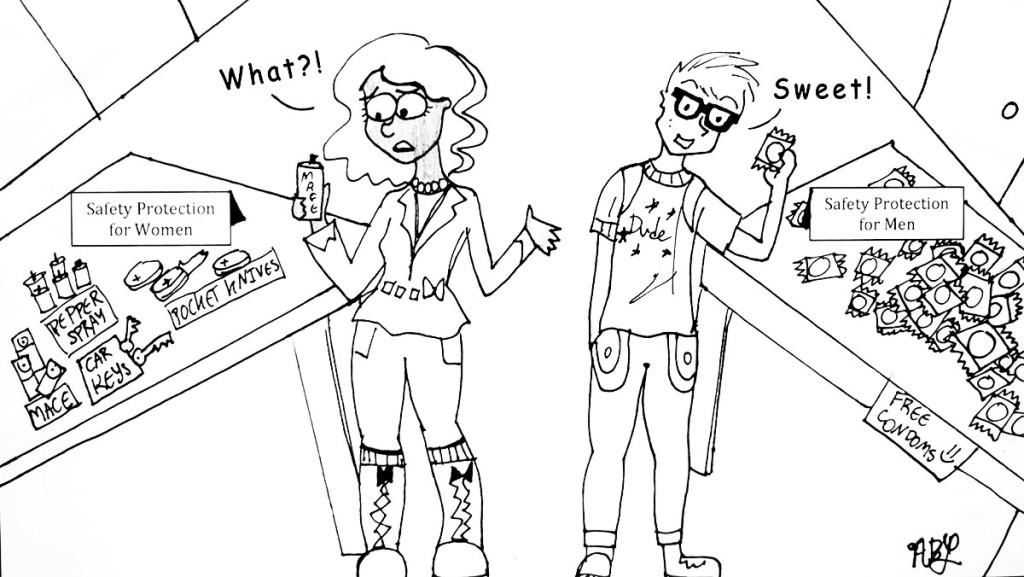It is difficult to instill a campus culture of respect and consent in response to violence and sexual assault prevention when some governmental bodies and campus leaders are still not getting it.
In a poor attempt to connect to a young audience during a social media campaign, the U.S. Department of State travel department tweeted travel advice for people going on spring break using a derogatory attractiveness scale. The message: “Not a ‘10’ in the US? Then not a 10 overseas. Beware of being lured into buying expensive drinks or worse—being robbed.” The condescending tweet, posted March 30, was deleted.
The conversation on how to prevent assault is, more often than not, misguided. Prevention strategies revolve mostly around what women should do to mitigate their risk and not enough on cultivating a respectful culture.
Ithaca College takes a part in this, too. Within the Sexual Harassment and Assault Response & Education program’s website, the section on “preventing sexual violence” is focused entirely on “you,” the individual potential victim, and actions “you” should take to ward off people disposed to violence. Communicate well so that you can detect coercion. Disengage if you need to. Avoid being alone. Don’t be a silent bystander.
In Governor Andrew Cuomo’s law passed in July requiring all colleges in New York to adopt comprehensive procedures to address sexual assault, there are mandates to define affirmative consent — also known as “Yes Means Yes” — meaning both parties in a sexual encounter must provide conscious and voluntary agreement to engage, not including silence or lack of protest.
The law addresses a cultural shift that must happen on all college campuses: a responsibility on part of all genders and players to take responsibility for actions and decisions and to prioritize clear communication on all sides about the value of people’s safety and comfort levels.
The concept of affirmative consent is not one-sided — it does not suggest that the potential victim is solely responsible for communicating well to prevent aggression.
Though SHARE addresses prevention, the prevention strategies listed do not address community values and campus culture. Places like Grinnell College in Iowa have been implementing more comprehensive conversations about this for years, referring to their sexual assault prevention orientations as “community value sessions” with interactive role-playing for all students to demonstrate how affirmative consent plays out in reality. For now, the concept of Yes Means Yes at Ithaca College remains a talking point during freshman orientation — not an integral aspect of campus life.














